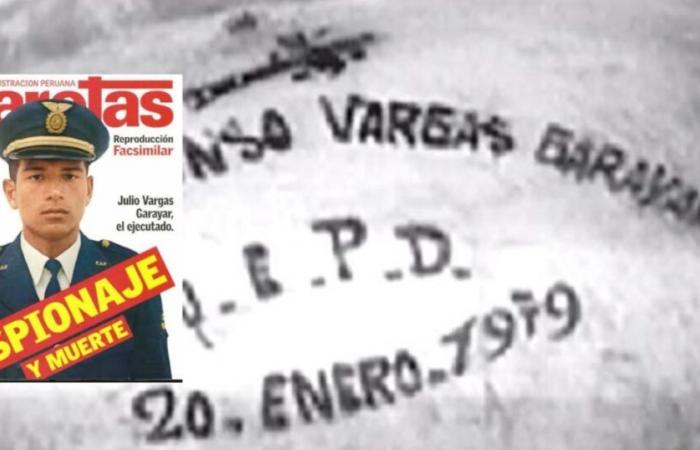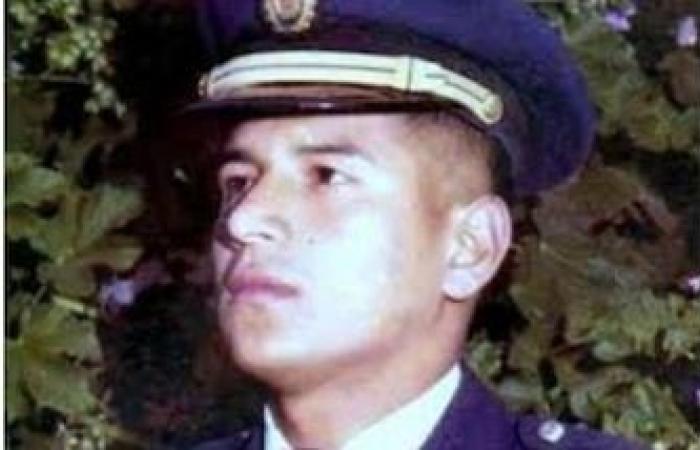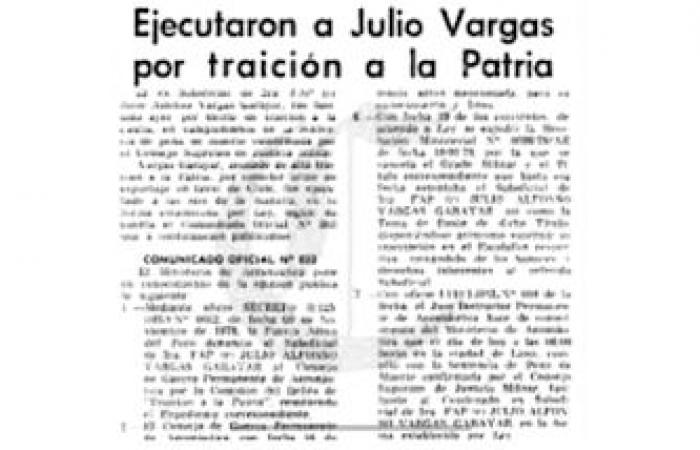Throughout the history of Peru, the death penalty has been a controversial issue and loaded with controversy. The execution of Julio Vargas Garayar, the last Peruvian convicted of death, marked the end of a stage in which this sanction was applied under exceptional circumstances and, in many cases, questioned. In January 1979, with just 29 years, Vargas It was shot after being guilty of espionage in favor of Chile, a crime that, according to the official version, would have threatened national security. However, the conditions in which his judgment was carried out, the secretism that surrounded the process and the accusations of torture that he received during the investigation have caused his story to remain involved in mystery and debate.
The historical context of 1979 is key to understanding the seriousness of the conviction and its transcendence. At that time, Peru lived under the De facto government of Francisco Morales Bermúdezwho had assumed power after a military coup in 1975. During its regime, the country was going through a tense relationship with Chile, especially in the military field, due to the differences inherited by the limit conflict of the nineteenth century. This international high voltage situation, added to the internal dictatorship, fed an atmosphere of distrust and repression, where Accusations of betrayal and espionage They became dangerously easy to formulate.
Julio Vargas Garayar was born in Lima and, from a young age, showed interest in the military career. However, his short stature prevented him from entering the Military Academy, which led him to study a technical specialization in the Peru Air Force (FAP). After finishing his training, Vargas was destined for various air bases in the country, where he performed lower rank functions. At the base of Pisco, where he was in charge of night guards, he suffered several setbacks in his career, being rejected twice for promotion. These professional failures marked the beginning of a stage in which their life would take an unexpected turn.
At the end of the 70s, Vargas moved to Lima, where he found work at the Chilean embassy. His work consisted of cleaning and maintenance tasks, how to wash cars and perform minor jobs for diplomatic personnel. However, his destiny changed when, according to subsequent investigations, he began to establish Contact with Chilean officers. The charges against him indicated that Vargas had been recruited by the Government of Chile to perform espionage work in exchange for important sums of money.
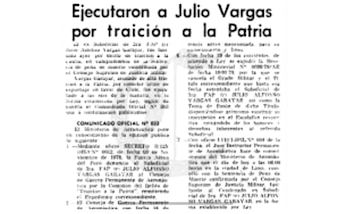
On October 12, 1978, the Peru Air Force denounced the disappearance of confidential information related to several strategic air bases, including that of the jewel in Arequipa. In this context, it was discovered that a Chilean ship had landed in the port of Talara, which raised espionage suspicions. During that same visit, two Chilean officers, the Captain Sergio Jarpa and Lieutenant Alfredo Andázeguiphotographing Peruvian combat planes were surprised. Both military pointed out that they fulfilled orders from the Chilean ambassador to Peru, Francisco Bulnes.
-Following this incident, the Peruvian authorities began a series of investigations that pointed to Vargas Garayar as the possible responsible for filming sensitive information to Chileans. According to reports, Vargas would have delivered to his Chilean contacts plans and photographs of the jewel air base, Using a Kodak 125 camera, all in exchange for money. After the arrest of Vargas, his case was quickly elevated to a military court and, in a process of just over two months, he was convicted of betrayal of the homeland and espionage.
The Julio Vargas trial was carried out within the framework of a military regime, where censorship and repression were current currency. The hearings were secret, and the conditions of their defense were extremely limited. According to his daughter’s testimonies, María Consuelo Vargas, her father underwent physical and psychological torture during the research process. Electric current would have been applied and it was hit on several occasions, with the intention of forcing him to confess. In that context, many argue that Vargas’s self -including was the product of the abuse suffered.
In December 1978, after a rapid conviction by the Military Court, the case of Vargas was appealed, but the decision was ratified. Despite the efforts of his defense to obtain an pardon, the January 20, 1979, Julio Vargas Garayar was executed for shooting in the concentration camp of the FAP base in Lima. At 29, he became the last Peruvian to be sentenced to capital punishment in the country.
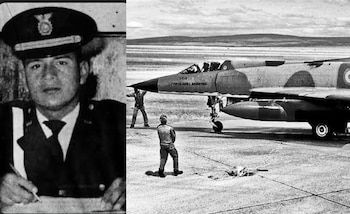
The official version argues that Vargas was a traitor who put the security of the Peruvian state at risk by selling key information to a foreign government. However, various actors in society, including the relatives of Vargas, have questioned this narrative. Vargas’ daughter, María Consuelo, has declared that she does not believe her father was a spy. In his opinion, His father was the victim of an authoritarian regime that used his case as an example to intimidate other possible dissidents. In addition, the circumstances in which his judgment was developed – marked by the torture and lack of a fair process – feed the doubts about the legitimacy of his conviction.
Despite the years since its execution, the case of Julio Vargas Garayar remains a topic of discussion in the historical memory of Peru. His death sentence occurred in an era of political and military tensions both internal and external, and is seen by many as a reflection of arbitrariness and abuse of power of the military regime of the time.

